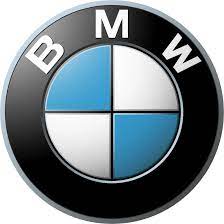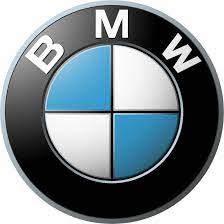
Higher prices of its cars as well as the strong sale of its electric vehicle (EVs), which easily offset hit to the company because of lower vehicle deliveries because of the semiconductor shortage, helped BMW to report a 42.4 per cent surge in its net profits for its third quarter to 2.58 billion euros ($2.99 billion), which easily beat estimates of analysts.
There was enough optimism with the company to exceed its aim of a 10 per cent pre-tax profitability margin this year, said the company’s finance head Nicolas Peter said during an earnings call, even though he cautioned that its performance in the fourth quarter could be slightly impacted by increased tax payments and investment expenses.
The company expects a continuation of strong EV sales through to after 2022, according to Peter.
According to the company’s CEO Oliver Zipse, the strong relationship that the company has with its suppliers helped it to cushion the hit of increased raw material prices, which have had an impact on the profitability of the operations of the company this year.
"We have always had good oversight over our supply chain. That is paying off now - right down to the raw materials," Zipse said.
With the global shortage of semiconductor chips used in the auto sector, a drop in sales of their vehicles in the third quarter has been reported by automakers ranging from Volkswagen to Stellantis to Renault. In September, the consultant BCG predicted that it expects a total of 10 million to 11 million fewer cars to be built globally this year as a result of the chip shortage.
However, compared to other automakers, the impact of the global shortage of chips was better negotiated by luxury manufacturers such as BMW and competitor Daimler, as they were able to offset eth lower sales caused by the impact of the shortage of chips by hiking prices. Both the luxury car makers posted an EBIT margin of 7.8 per cent in the third quarter, which was more than Volkswagen's 4.9 per cent.
Despite a drop of 12.2 per cent in deliveries in its third quarter, BMW managed to still record a surge in revenues of 4.5 per cent. There was a significant boost to revenues particularly in the EV segment as the company reported almost doubling of sales in the nine months to September at just under 232,000 vehicles, compared to the same period a year ago.
"A better product mix and good price setting of new vehicles alongside a stable pricing trend of used vehicles strengthened the financial performance of the business," a company statement said.
Nonetheless, Peter stated that the absence of chips was "by no means a godsend" because the firm might have sold tens of thousands of its cars but was unable to manufacture them for delivery.
The business is projected to produce up to 90,000 fewer cars in 2021 due to a shortage of semiconductors, the company’s finance chief had said earlier this year.
Its EBIT margin projection for its automotive sector, at being between 9.5 per cent and 10.5 per cent was reaffirmed by BMW, as the company also noted that it would be able to meet this target by a slight culling of jobs and expenses.
"We are on track for our full-year forecast and are looking forward," Peter said. "We expect that semiconductor supply will be in an issue for us beyond 2021.
(Source:www.reuters.com)
There was enough optimism with the company to exceed its aim of a 10 per cent pre-tax profitability margin this year, said the company’s finance head Nicolas Peter said during an earnings call, even though he cautioned that its performance in the fourth quarter could be slightly impacted by increased tax payments and investment expenses.
The company expects a continuation of strong EV sales through to after 2022, according to Peter.
According to the company’s CEO Oliver Zipse, the strong relationship that the company has with its suppliers helped it to cushion the hit of increased raw material prices, which have had an impact on the profitability of the operations of the company this year.
"We have always had good oversight over our supply chain. That is paying off now - right down to the raw materials," Zipse said.
With the global shortage of semiconductor chips used in the auto sector, a drop in sales of their vehicles in the third quarter has been reported by automakers ranging from Volkswagen to Stellantis to Renault. In September, the consultant BCG predicted that it expects a total of 10 million to 11 million fewer cars to be built globally this year as a result of the chip shortage.
However, compared to other automakers, the impact of the global shortage of chips was better negotiated by luxury manufacturers such as BMW and competitor Daimler, as they were able to offset eth lower sales caused by the impact of the shortage of chips by hiking prices. Both the luxury car makers posted an EBIT margin of 7.8 per cent in the third quarter, which was more than Volkswagen's 4.9 per cent.
Despite a drop of 12.2 per cent in deliveries in its third quarter, BMW managed to still record a surge in revenues of 4.5 per cent. There was a significant boost to revenues particularly in the EV segment as the company reported almost doubling of sales in the nine months to September at just under 232,000 vehicles, compared to the same period a year ago.
"A better product mix and good price setting of new vehicles alongside a stable pricing trend of used vehicles strengthened the financial performance of the business," a company statement said.
Nonetheless, Peter stated that the absence of chips was "by no means a godsend" because the firm might have sold tens of thousands of its cars but was unable to manufacture them for delivery.
The business is projected to produce up to 90,000 fewer cars in 2021 due to a shortage of semiconductors, the company’s finance chief had said earlier this year.
Its EBIT margin projection for its automotive sector, at being between 9.5 per cent and 10.5 per cent was reaffirmed by BMW, as the company also noted that it would be able to meet this target by a slight culling of jobs and expenses.
"We are on track for our full-year forecast and are looking forward," Peter said. "We expect that semiconductor supply will be in an issue for us beyond 2021.
(Source:www.reuters.com)





